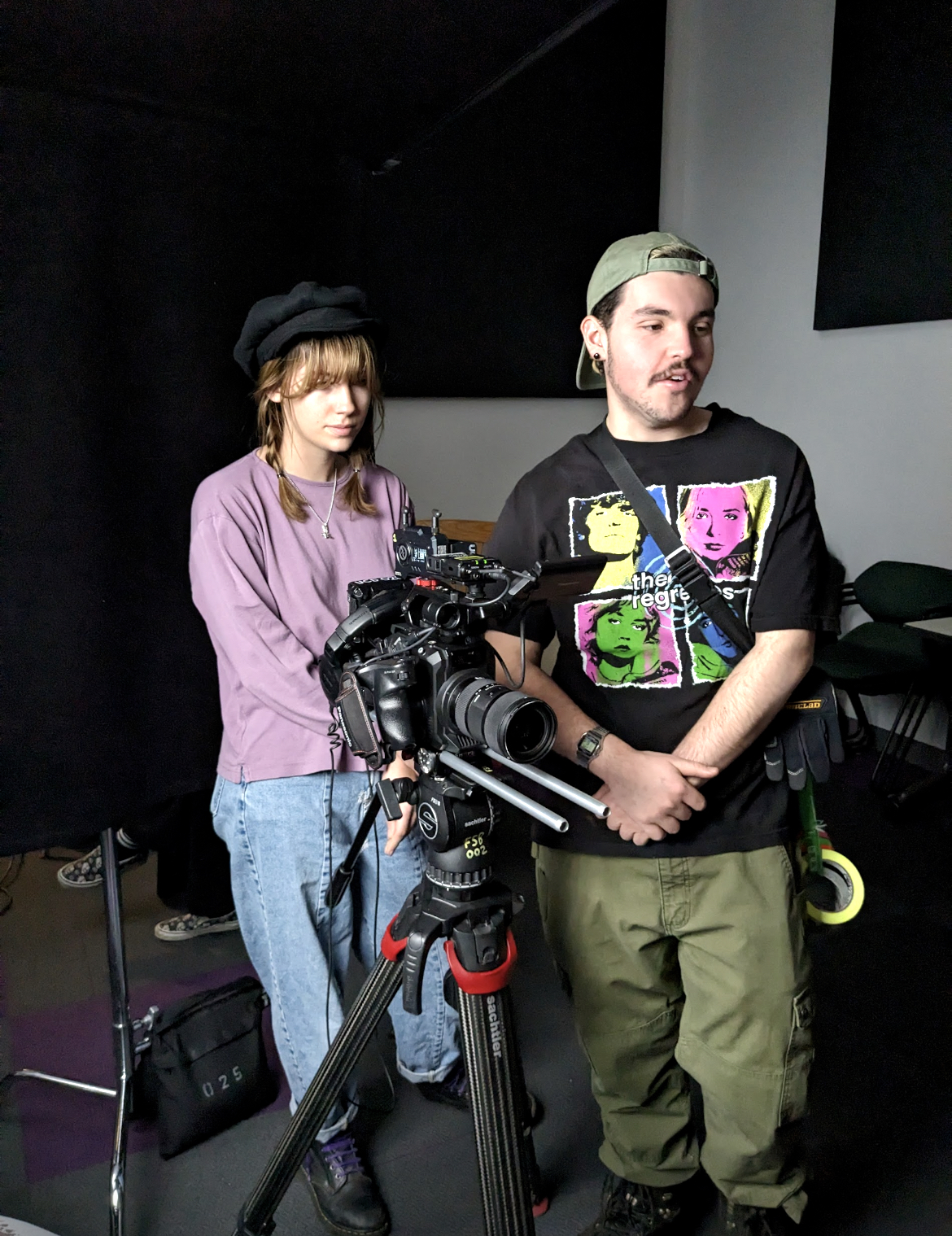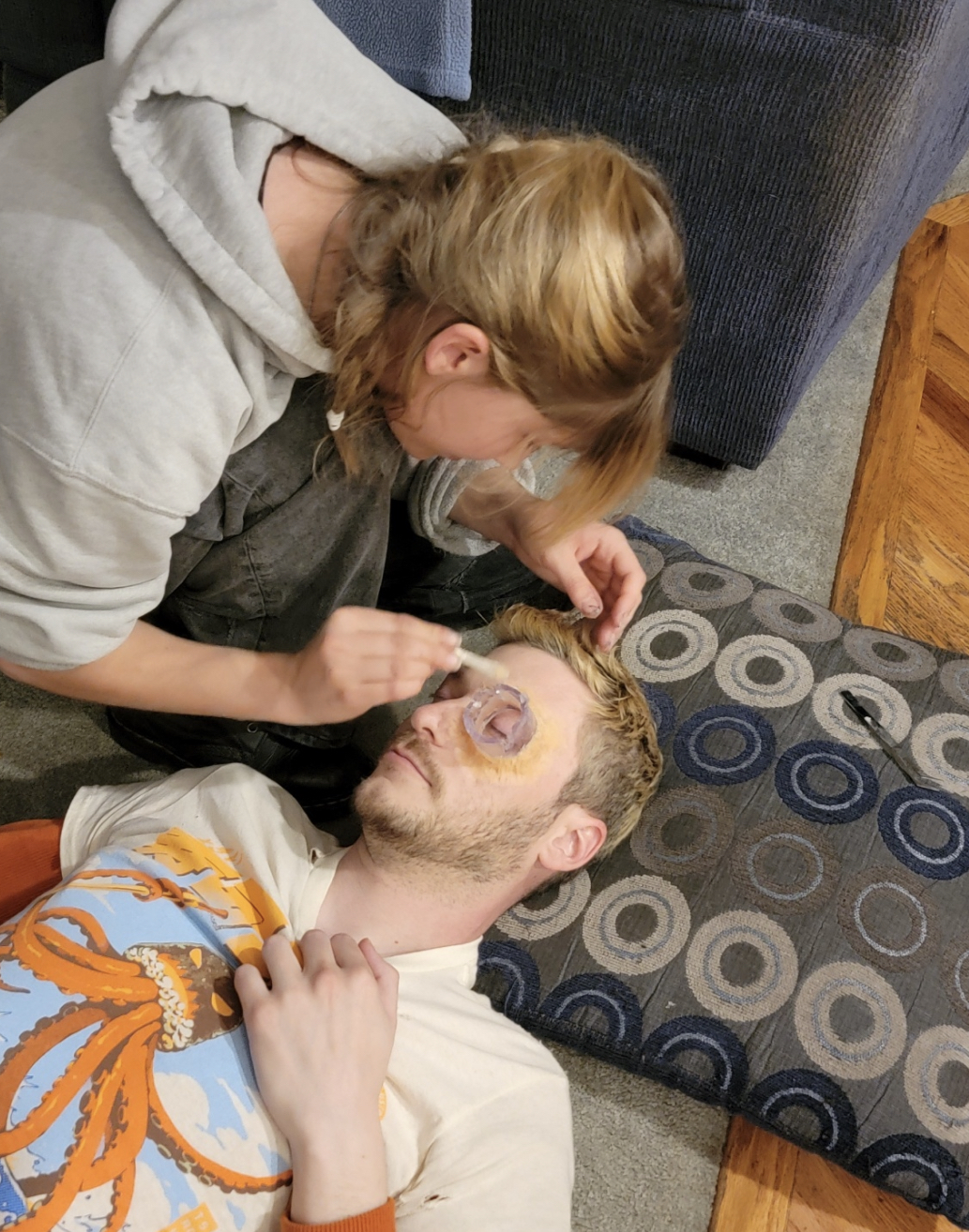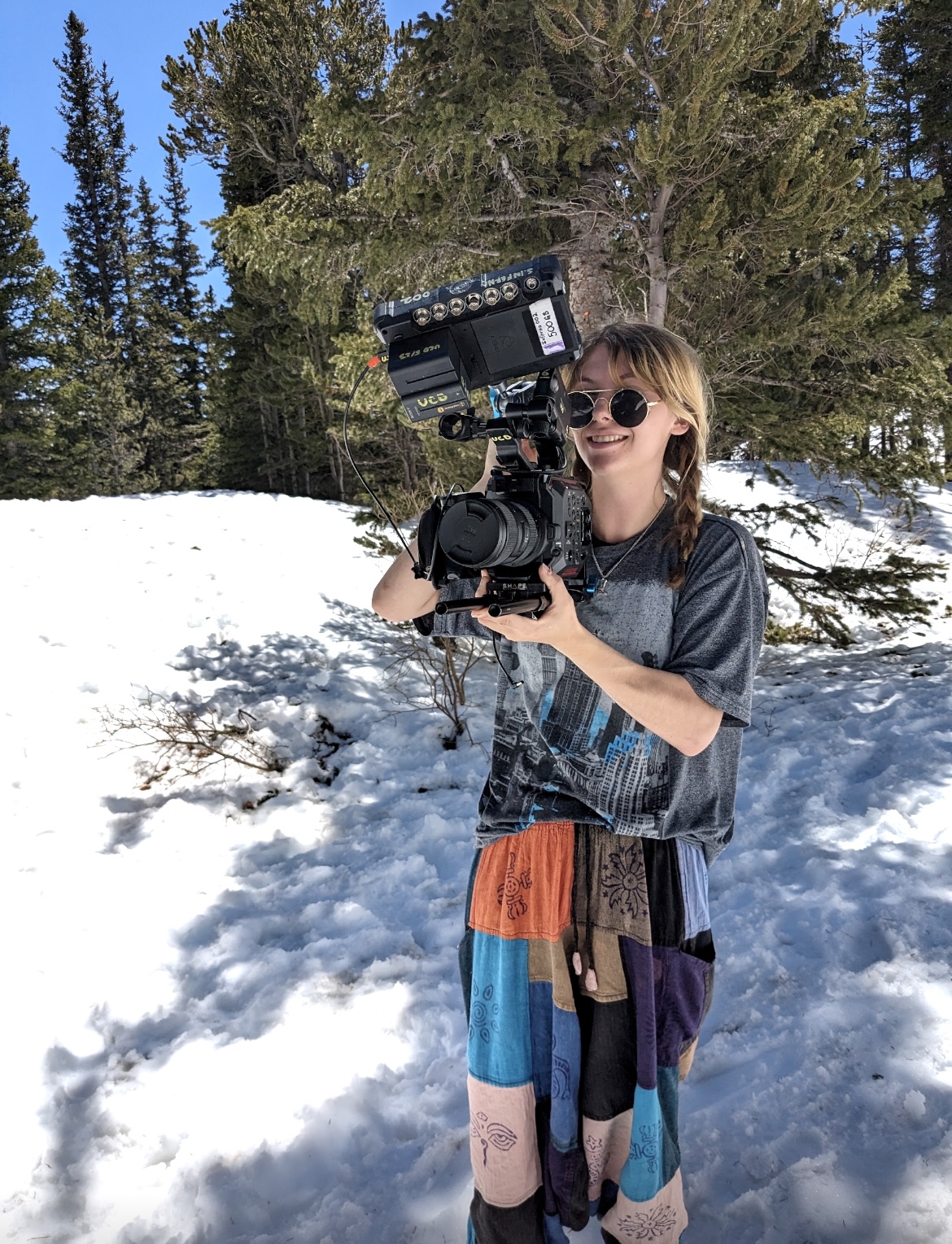Get to Know Marley Tremmel '26
Film & Television student Marley Tremmel shares her experiences on set and preparing for a career in the film industry.
Jasper Lipscomb | College of Arts & Media Jul 11, 2024
Filmmaking is a challenging and competitive industry that relies on successful collaboration between dozens of artists with diverse skill sets. While CU Denver Film & Television teaches hands-on learning, technique, and on-set filmmaking, writer/director Marley Tremmel is guaranteeing her education provides the best of that and more. She’s optimizing her time as a CU Denver Film & Television student by founding and leading the CU Denver Film Club. Originally from Thornton, Marley has been using the convenience of nearby Denver to explore the arts since childhood. Living in the city has only nurtured her appreciation of these as she pursues her degree. To her, film is a logical combination of the writing, painting, and fascination with video that defined her early years. To position herself build a career in the film industry she’s making great efforts to optimize her time here, whether by pursuing documentary filmmaking or starting a club supported by CU Denver’s student government.
1. Are there aspects of leading the CU Denver Film Club that have enhanced your educational experience or met needs not provided by coursework?
Oh, absolutely. The club has been operating for under a year, but it’s impossible to quantify how much I’ve learned about working with people across several different fronts. A roadblock we ran into while establishing the club was that the equipment we could use was only accessible for coursework. Our gear manager, Cadence Marsolek, worked with the Student Government Association to help them understand our needs. I’ve found writing grants is probably the best way to get projects funded, though it’s not a common part of arts curriculums. The club was awarded five thousand dollars to purchase equipment with thousands in extra funding to produce the films we planned to make as a club. By spring, we were awarded unprecedented additional grants from the Colorado Office of Film, Television and Media.
2. Your short, ‘Kill Your Darlings,’ is a tonal change from ‘Broken Record,’ a slice-of-life about recurring issues in intimate relationships. What inspired you to switch from that to a film set murder mystery instead?
When directing for the first time on ‘Broken Record,’ I only had a very literal technical film knowledge, but I was lucky to work with a crew who were as excited as me about the project. I really only wanted to focus on the story with ‘Broken Record,’ but when writing ‘Kill Your Darlings,’ I wanted to do that while also pushing myself technically. We did this by using a Steadicam instead of a stationary tripod, focusing on lighting, and shooting the whole film as a ‘oner,’ or a film made from a single recording. A professor of mine mentioned he wished someone would try it, so my co-writer and director Jack Kabel and I took the challenge. Oners are unique, as the whole production operates more like a carefully choreographed stage play. We didn’t try to find clever moments to cut seamlessly between shots, so this made directing nine actors a much greater undertaking than Broken Record’s two. Lighting was really what I learned the most about from this experience, however, and I came away with a greater appreciation for how overlooked that aspect of filmmaking is.
3. ‘Kill Your Darlings’ also tells the story of a dysfunctional film crew. With your experiences at CAM and off-campus, what would you say needs to be in place for a film crew to function well?
In another lucky break, I usually have collaborators I work well with. Jack and I actually came up with the idea on a professor’s set, where the steamer I was using for costumes knocked out power for the whole production. Things have gone smoothly for me otherwise, so far, but I have a friend who uses every set as an opportunity to take extensive notes on what NOT to do. From what I’ve experienced, miscommunication is the poison that can sink a production, as resentment builds quickly in an often-underfed crew. Good food really matters on set.
Our main character in the film, the Assistant Director (AD), was played by the actual AD on set and I think that helped him stay in character. An AD keeps everyone on track and is a luxury on student films that can make the difference between a good day and nothing getting done.
4. In an industry with so many possible paths and crafts to pursue, what has drawn you to working mainly as a writer/director?
While I like the hair and makeup side of the craft, my background is primarily in writing, so I always approach film from that perspective. I love bringing talented people together who are excited about the script since I feel I don’t always excel as much in these more technical areas. Writing and directing is a tough area to find opportunities in, and most need to make their own, so I’m using my peer group and the safety net of the university to create as many as possible. Jobs of many can come down to only one person on student films, but I think I do well in these leadership positions.
5. Where’s a location or time period you would really like to tell a story, but may not have the budget for?
Currently, anything like that is outside of my budget, so I’d start with a feature film before considering much else. In the future, I’d love to make a large-scale musical or adapt some of my favorite novels. One I’d like to do that I don’t believe anyone’s tried is, ‘Go,’ by John Holmes, which takes place in the 1940s and follows a group of people early in the ‘beat generation.’ In my upcoming third year, I hope to make a film that follows one such ‘beatnik,’ William Burroughs, who murdered his wife in a sort of William Tell act. There’s little description of this event in any of the beat books, so I can adapt this without being restricted by any source material. The period has so many stories I’d love to put into film.

Marley exercising her skills in the makeup department.
